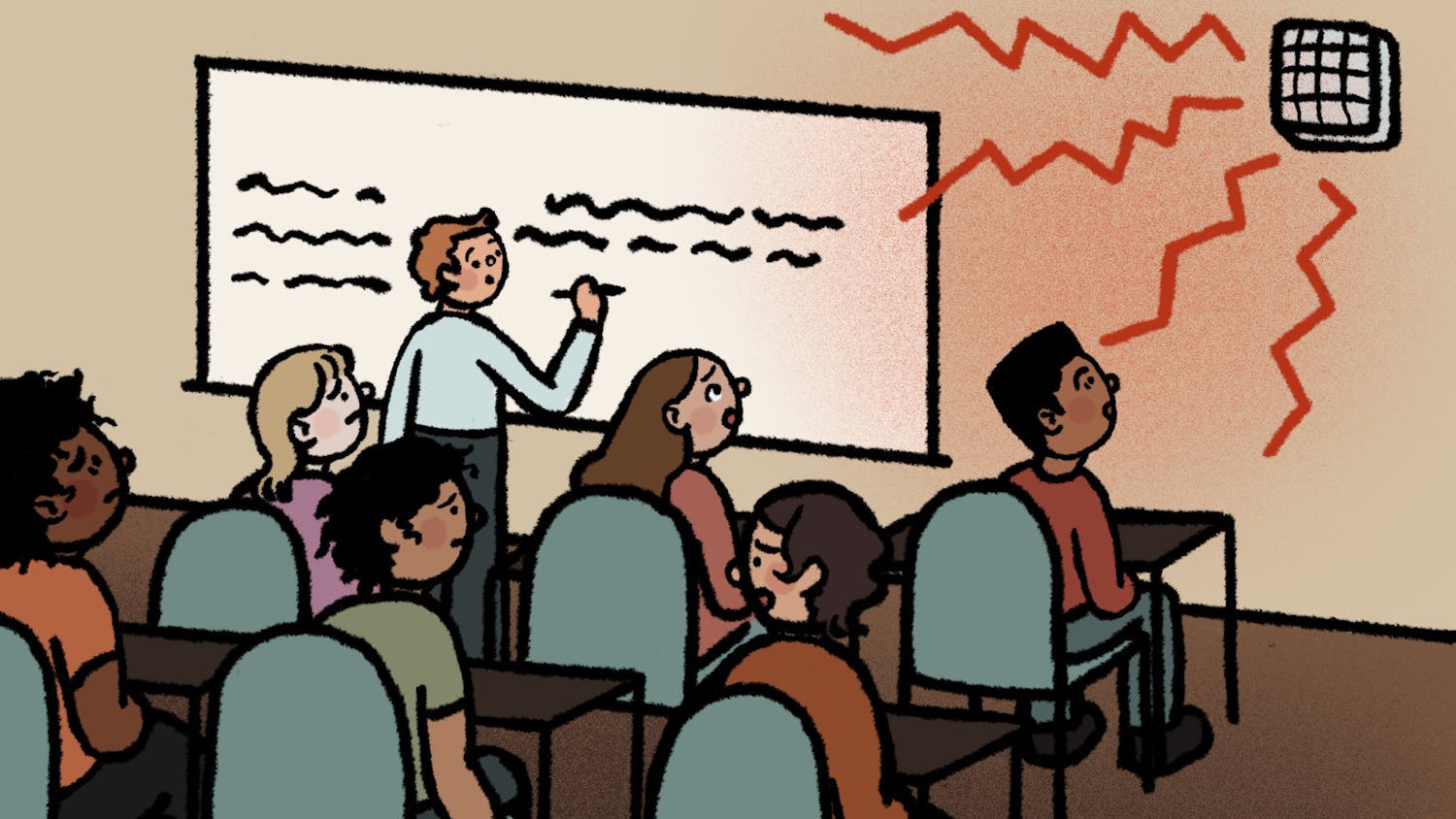Illustration by Cole Sandhofer By Hailee Wickersham On May 7 the student senate meeting began with its customary banging of the gavel by its interim pro-tempore and Associated Students vice president of academic affairs Levi Eckman. “Public forum going once, going twice, and not sold because we are a non-profit,” Eckman joked. Student senators discussed the many proposed revisions to Title IX amended by the U.S. Department of Education and the agency’s Secretary of Education, Betsy Devos, at the May 7 meeting. Nicole Wood, AS student senator for Woodring College, drafted and presented a document in opposition to the proposed changes to Title IX alongside Adah Barenburg, AS at-large senator. The document titled “Resolution Opposing Proposed Changes to the Title IX Regulations” can be found on the AS Student Senate website. Title IX became a law in 1972, making it illegal to discriminate against people in federally-funded education settings on the basis of their sex, according to the U.S. Department of Justice. If the Department of Education were to move forward with their amendments to the law, universities would be less responsible for investigating complaints of sexual assault, and would require a higher standard of proof when reporting cases of sexual violence, Wood outlined on Thursday. In addition to these changes, Wood said the Department of Education would no longer require universities to investigate instances of sexual violence when they occur in off-campus housing or abroad. The changes would also allow for a “live cross-examination” meeting where the victim and accused would come face-to-face. According to a document presented to the AS Student Senate, the president of the Association of Title IX Administrators predicted this proposal will drop future reports of incidents of sexual assault by 50%. In addition to the opposition on the table to Title IX, the senate also revealed their proposed budget for the 2019-2020 fiscal year. The budget was presented by the AS VP of business and economics, Nate Jo. This year’s the university’s budget will be running on a deficit budget. However, it can be expected that Western will not be in a deficit by the end of the year, Jo said. Jo explained it’s important to keep in mind that historically, the AS have never spent the entirety of their budget. While the AS will be functioning in a deficit budget, it’s likely that they will have leftover money after the fiscal year. The leftover funding would typically go to the reserve fund, but instead the money will be able to cover the gaps in the budget, such as accommodating for the planned minimum wage increase starting in 2019, said Eckman. The operating budget is funded by the Services and Activities Fee. This fee is included in tuition costs paid by all Western students in order to support vital programs, services and activities on campus. These programs and activities include things such as the AS, student housing and dining, campus rec and club sports and athletics, according to the Services and Activities Fee Committee webpage. The AS receives 34.6% of the total allocation from the fee to use for the fiscal year, according to the Services and Activities Fee Committee webpage. Students are able to access the entirety of the budget recommendations for 2019-2020 on the AS website.





